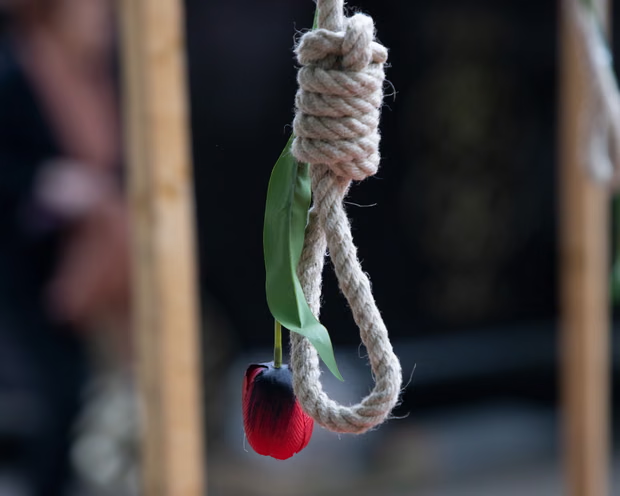Now Reading: Iranian Child Bride Faces Execution Unless She Pays £80,000 ‘Blood Money’ for Killing Abusive Husband
-
01
Iranian Child Bride Faces Execution Unless She Pays £80,000 ‘Blood Money’ for Killing Abusive Husband
Iranian Child Bride Faces Execution Unless She Pays £80,000 ‘Blood Money’ for Killing Abusive Husband

A 25-year-old Iranian woman, Goli Kouhkan, who was forced into marriage as a child, faces execution by December unless she can raise 10 billion tomans (about £80,000) to compensate the family of her late husband.
Kouhkan, who has spent the past seven years on death row in Gorgan central prison in northern Iran, was only 18 when she was arrested in 2018 for allegedly taking part in her husband’s killing. Human rights groups say she acted after years of domestic abuse and that her case exposes Iran’s deep-rooted discrimination against women and ethnic minorities.
According to Iran Human Rights (IHR), Kouhkan belongs to the Baluch ethnic minority — one of Iran’s most marginalised communities — and has no official identity documents. She was married to her cousin at 12, gave birth at 13, and endured years of beatings and humiliation.
When she once fled to her parents’ home, her father reportedly told her: “I gave my daughter away in a white dress; the only way you can return is wrapped in a shroud.”
The day of the fatal incident, Kouhkan reportedly found her husband beating their five-year-old son. After calling a cousin for help, a violent struggle broke out that ended with her husband’s death. Kouhkan immediately called an ambulance and reported the incident to authorities, but she and her cousin were arrested.
Without legal representation and under pressure, the illiterate young mother signed a confession that sealed her death sentence.
Under Iranian law, a victim’s family can pardon a murderer in exchange for diya, or “blood money.” Prison officials have struck a deal allowing Kouhkan to escape execution if she can pay the £80,000 demanded by her husband’s relatives — and agree to leave Gorgan permanently.
Her 11-year-old son is now being raised by his paternal grandparents, and she is unlikely ever to see him again.
Human rights campaigners describe Kouhkan’s case as part of a wider pattern of injustice faced by women in Iran.
“Kouhkan is not one single case,” said Ziba Baktyari of Bramsh, a women’s rights group from Balochistan. “Baluch women are targeted by the regime. They’re married off young, denied education, and trapped in abusive marriages because of poverty.”
Iran has executed more women than any other country in recent years. According to IHR, 31 women were executed in 2024 — the highest figure in 15 years — and at least 30 have been executed so far in 2025, many for murder or moral offences.
The tragic story of Goli Kouhkan follows similar cases, including Fatemeh Salbehi, Zeinab Sekaanvand, and Samira Sabzian Fard, all of whom were executed after being convicted of killing abusive husbands they were forced to marry as teenagers.
Rights organisations continue to urge international attention and financial aid to save Kouhkan’s life before her December deadline expires.




